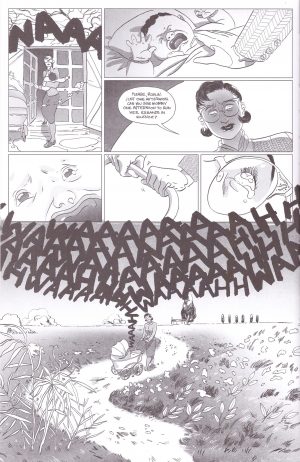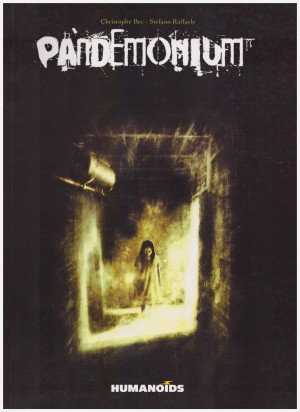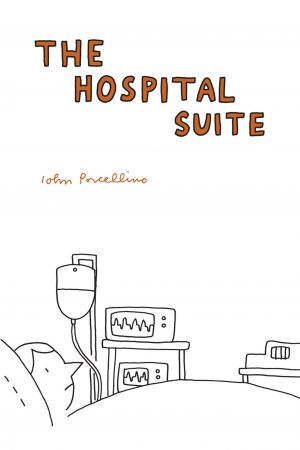Review by Ian Keogh
This hardcover horror story clocks in at just forty pages, but is a memorably ambiguous exploration of post-natal depression. We first meet Emma and Thomas just about to move into a new rural property with Emma heavily pregnant. They’re happy, and we see inside their new home, with creator Celine Loup accentuating the sounds heard in old houses. Turn the page and Emma is discussing her condition with a therapist, aware she’s there after an incident and admitting to considering herself a danger to her child. That baby, Roslin, is almost constantly crying, but as if in distress rather than need, and not being able to sleep takes its toll on Emma. Still, Thomas is considerate and supportive until the day he cuts the lock on the attic door. There’s a crash, and the Thomas who comes down the attic stairs is notably different. Placid and distant, he constantly reads the same book, except it’s upside down.
Without support, the stress of the screaming infant becomes unbearable, and we’re eventually shown the events leading to Emma’s consultation. Loup’s afterword notes that although The Man Who Came Down the Stairs deals with post-natal depression it was produced as she confronted her own biological imperatives along with a fear of motherhood, primarily the possibility of regret. It gives her story a profoundly emotional undercurrent, and as it continues the certainties readers have at the beginning gradually evaporate.
As seen on the sample art, sound is extremely important. Unless specifically listening we have the capacity to filter out sound, and the same applies to reading comics, where the sound effects are absorbed almost unknowingly, yet adding to the mood. Loup ensures there’s no skimping on the sound, and there’s barely a page without them on a scale down from the full-on scream to the quietly ticking clock. They’re presented in massive lettering, occasionally larger than the figures in a panel, almost swamping them.
Eventually, ambiguity is all. Are we to read the entire story as a metaphor for comfort acquired by confronting one’s fears, Thomas doing so before Emma? Just how blurred is the line between fantasy and reality? And how much of each is Emma experiencing? That Loup draws The Man Who Came Down the Attic Stairs as a period piece further clouds the senses. It’s a story that resonates, read far more quickly than it’s forgotten and opening the door to a conversation that ought to be had more often.





